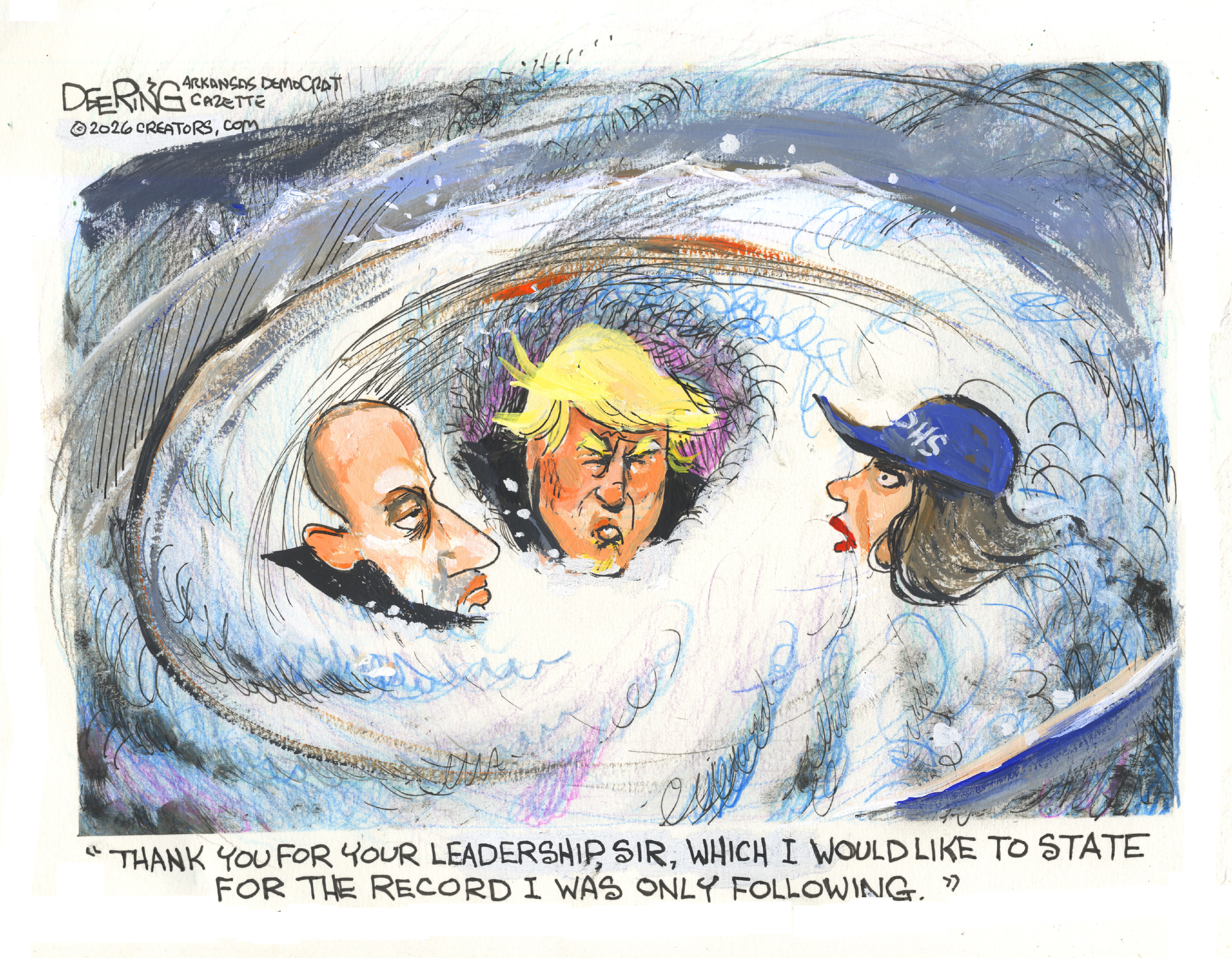WikiLeaks: Can the U.S. prosecute Julian Assange?
The Obama administration wants to have the WikiLeaks founder extradited... but on what charges could the government try him?

A free daily email with the biggest news stories of the day – and the best features from TheWeek.com
You are now subscribed
Your newsletter sign-up was successful
Julian Assange is behind bars in Britain on an arrest warrant over alleged sex offenses in Sweden. But both the Obama administration and senior Republicans have called for the WikiLeaks founder to face charges in an American court. The Justice Department is looking at various options for indicting Assange — considering potential charges under the 1917 Espionage Act and "other possible offenses, including conspiracy [with the person who originally leaked the documents] or trafficking in stolen property." Could Assange really be prosecuted here? (Watch an AP report about Assange's status)
No. We still have a First Amendment: The Constitution, says Michael A. Lindenberger at Time, "provides enormous protection for publishers of state secrets." Assange didn't steal documents, he merely published them. That's pretty clearly protected under the First Amendment. Getting Assange to the U.S. won't be easy either. "Even the friendliest" European nations "will look askance at any extradition request that looks to be political in nature."
"The U.S.'s weak legal case against WikiLeaks"
The Week
Escape your echo chamber. Get the facts behind the news, plus analysis from multiple perspectives.

Sign up for The Week's Free Newsletters
From our morning news briefing to a weekly Good News Newsletter, get the best of The Week delivered directly to your inbox.
From our morning news briefing to a weekly Good News Newsletter, get the best of The Week delivered directly to your inbox.
And our Espionage Act is not up to the task: Trying Assange under the Espionage Act would be near impossible, says Louis Klarevas at The Atlantic. It is "wildly out of date." For example, it states that anyone who "obtains and retains classified information" is guilty of a crime. That would put all the newspapers who published the stories on the wrong side of the law. And if you posted them on your Facebook wall, "you're probably guilty too."
"WikiLeaks, the web, and the need to rethink the espionage act"
It depends on what Assange did: If Assange collaborated with the leaker of these cables, says Charlie Savage at The New York Times, say, by "directing him to look for certain things and providing technological assistance," then he could be tried as a co-conspirator. But there is "no public sign" that he did.
"U.S. prosecutors study WikiLeaks prosecution"
A free daily email with the biggest news stories of the day – and the best features from TheWeek.com
The government will find a way: If the law doesn't exist to charge Assange, says Glenn Greenwald at Salon, the government will simply create one. The truth is, the U.S. is "happy to severely punish anyone they want without the slightest basis in 'law.'" Already, it has "blocked access to [Wikileaks'] assets, tried to remove them from the internet" and "declared them 'terrorists" — all without "any charges being filed or a shred of legal authority."
"Anti-WikiLeaks lies and propaganda — from TNR, Lauer, Feinstein and more"
-
 6 gorgeous homes in warm climes
6 gorgeous homes in warm climesFeature Featuring a Spanish Revival in Tucson and Richard Neutra-designed modernist home in Los Angeles
-
 Russia’s ‘cyborg’ spy pigeons
Russia’s ‘cyborg’ spy pigeonsUnder the Radar Moscow neurotech company with Kremlin-linked funding claims to implant neural chips in birds’ brains to control their flight, and create ‘bio-drones’
-
 Political cartoons for February 8
Political cartoons for February 8Cartoons Sunday’s political cartoons include going down the drain, American history, and more
-
 The billionaires’ wealth tax: a catastrophe for California?
The billionaires’ wealth tax: a catastrophe for California?Talking Point Peter Thiel and Larry Page preparing to change state residency
-
 Bari Weiss’ ‘60 Minutes’ scandal is about more than one report
Bari Weiss’ ‘60 Minutes’ scandal is about more than one reportIN THE SPOTLIGHT By blocking an approved segment on a controversial prison holding US deportees in El Salvador, the editor-in-chief of CBS News has become the main story
-
 Has Zohran Mamdani shown the Democrats how to win again?
Has Zohran Mamdani shown the Democrats how to win again?Today’s Big Question New York City mayoral election touted as victory for left-wing populists but moderate centrist wins elsewhere present more complex path for Democratic Party
-
 Millions turn out for anti-Trump ‘No Kings’ rallies
Millions turn out for anti-Trump ‘No Kings’ ralliesSpeed Read An estimated 7 million people participated, 2 million more than at the first ‘No Kings’ protest in June
-
 Ghislaine Maxwell: angling for a Trump pardon
Ghislaine Maxwell: angling for a Trump pardonTalking Point Convicted sex trafficker's testimony could shed new light on president's links to Jeffrey Epstein
-
 The last words and final moments of 40 presidents
The last words and final moments of 40 presidentsThe Explainer Some are eloquent quotes worthy of the holders of the highest office in the nation, and others... aren't
-
 The JFK files: the truth at last?
The JFK files: the truth at last?In The Spotlight More than 64,000 previously classified documents relating the 1963 assassination of John F. Kennedy have been released by the Trump administration
-
 'Seriously, not literally': how should the world take Donald Trump?
'Seriously, not literally': how should the world take Donald Trump?Today's big question White House rhetoric and reality look likely to become increasingly blurred